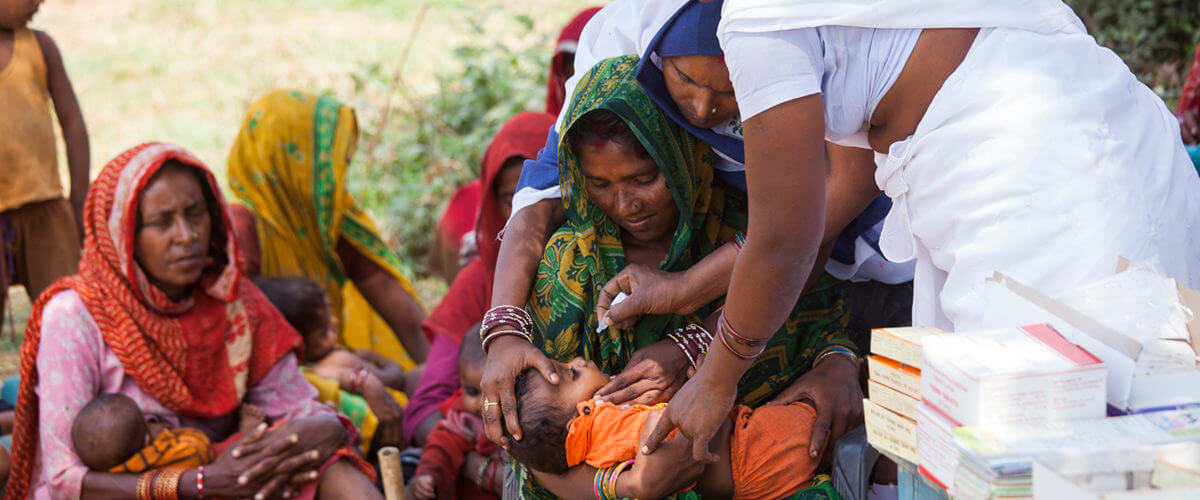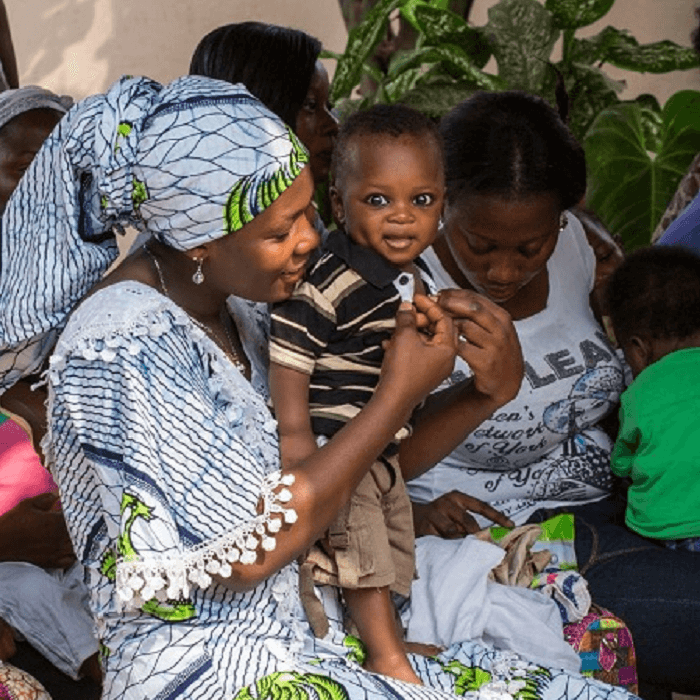The Opportunity
To improve primary health care (PHC), adequate funding and data are critical. Many countries have identified primary health care as an urgent priority, but they lack comprehensive data to pinpoint specific weaknesses, understand their causes, and strategically direct resources to address the areas of greatest need.
Countries often lack performance data about the important processes required to convert inputs, like vaccines, to outputs such as a vaccinated child—critical to producing strong health outcomes. Questions around these health systems processes persist:
- Access: Do patients have affordable, timely access to PHC that is geographically convenient?
- Availability of effective PHC services: Are PHC facilities functioning well, with workers who are motivated, competent, and equipped to provide PHC services?
- People-centered care: Does the system offer the well-established key functions of PHC including first contact accessibility, coordination, comprehensiveness, continuity, and safety?
- Organization and Management: Does the system appropriately organize and manage important elements of PHC delivery, including team-based care, supportive supervision, population health management, and use of information systems that aid in monitoring services and continually improving quality?
With better information on how PHC services get delivered, countries and their development partners can understand where change will have the biggest impact.
Our Work
The Primary Health Care Performance Initiative (PHCPI), launched in 2015, is a partnership that brings together country policymakers, health system managers, advocates and other development partners to catalyze improvements in primary health care in low- and middle-income countries through better measurement, knowledge-sharing, and deploying data for improvement.
PHCPI helps countries
- Track key performance indicators for their PHC systems, identifying which parts of the system are working well and which ones aren’t
- Enhance accountability and provide decision-makers with essential information to drive health system improvements
- Provide a platform for countries to make data actionable and share lessons and best practices.
As a founding member of the PHCPI partnership, R4D is leading efforts to help policymakers use data for improvement. R4D collaborated with the Joint Learning Network for Universal Health Coverage (JLN) on the Measurement for Improvement (M4I) collaborative, a country-led effort to unearth current indicators used to measure primary health and put that data into action. M4I collaborative members produced this toolkit to guide practitioners through the process of measuring performance and using data for improvement, including in difficult-to-measure service delivery areas where little measurement guidance has previously existed.
R4D works closely with all PHCPI partners (including the Bill and Melinda Gates Foundation, the World Bank, World Health Organization, UNICEF, and Ariadne Labs) to expand global data availability for primary health care. To this end, PHCPI launched a new measurement tool—the Vital Signs Profile— in 2018 at the Global Conference on Primary Health Care. By compiling and analyzing multiple quantitative and qualitative data sources across four key pillars—financing, capacity, performance, and equity— the Vital Signs Profile helps to build a richer and more nuanced picture of a country’s primary health care system.
In 2020, R4D published Taking Stock of the Global Primary Health Care Measurement Landscape. With a growing focus on PHC measurement among global health stakeholders, this report identifies areas of alignment and divergence across PHC-relevant frameworks. It also explores where data are being collected in low- and middle-income countries (LMICs) through standardized global surveys. While progress has been made in understanding how to measure PHC, the report identifies that more work remains to be done to align measurement approaches, fill measurement gaps, and regularly produce PHC data, especially for LMICs.
In 2020, R4D launched a Community of Practice to deepen and extend the dialogue around PHC measurement and improvement. The COP includes the PHCPI Online Forum—a digital space to facilitate the sharing of experiences, stories, tools, approaches and resources, and foster joint problem solving—and partnership with the Joint Learning Network (JLN) to support two learning exchanges—”Understanding and Utilizing Data in COVID-19 Response and Recovery” and “Transforming the Health System to Prioritize Primary Health Care”—that address PHC challenges during the COVID-19 pandemic response and recovery.
Visit improvingphc.org to explore key PHC performance indicators, download country datasets, and learn more about how PHC data can drive policy improvements.
Photo: A child receives polio drops during routine immunization outside the Anganwadi Centre in Roti Mushahari village, Saharsa district, Bihar, India. Credit: Gates Foundation















